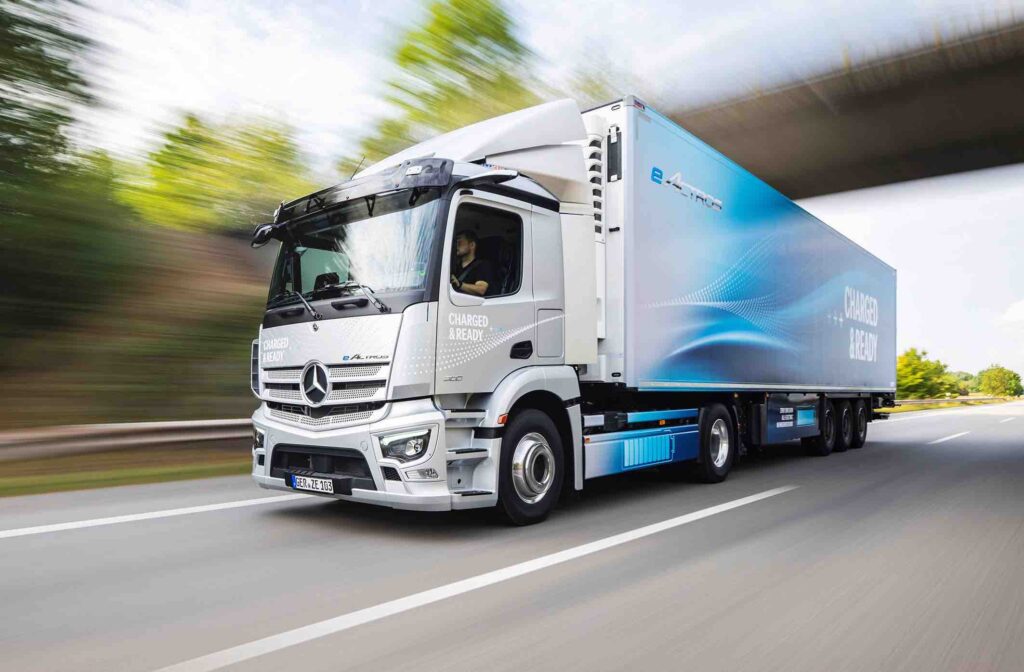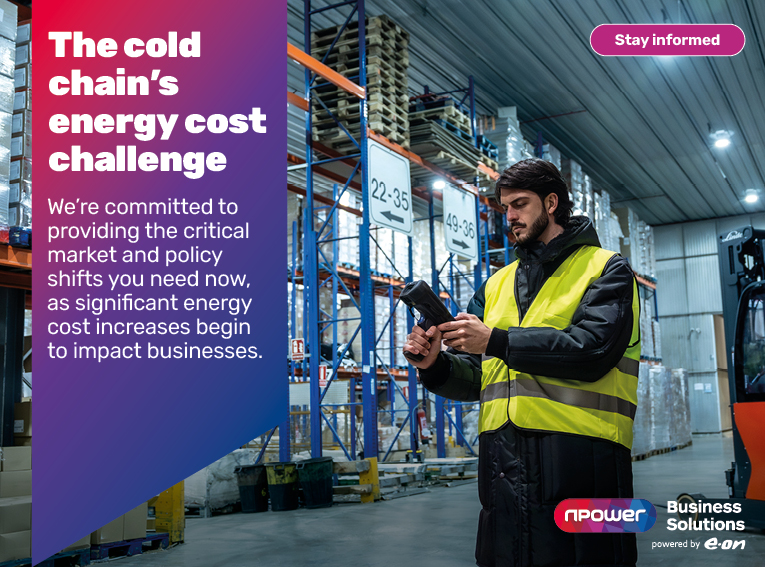Hanover, Germany: IAA Transport show exhibitors have signalled the way ahead for road transport refrigeration. Cold Chain News‘ latest issue, October, had the highlights.
Carrier Transicold launched a hydrogen fuel cell powered trailer fridge developed with Bosch and PowerCell Sweden. The fuel cell, coupled to a Carrier Transicold Vector HE 19 fridge, delivers the same autonomy as diesel engines in the standard Vector.
The Bosch 48-volt battery directly interfaces the fuel cell with the fridge with no standalone engine or a separate battery system. The fuel cell is powered by hydrogen stored in tanks with direct current provided by the fuel cell converted into the alternating current needed to operate the fridge.
The refilling time is the same as a diesel unit and it can also achieve a similar range.
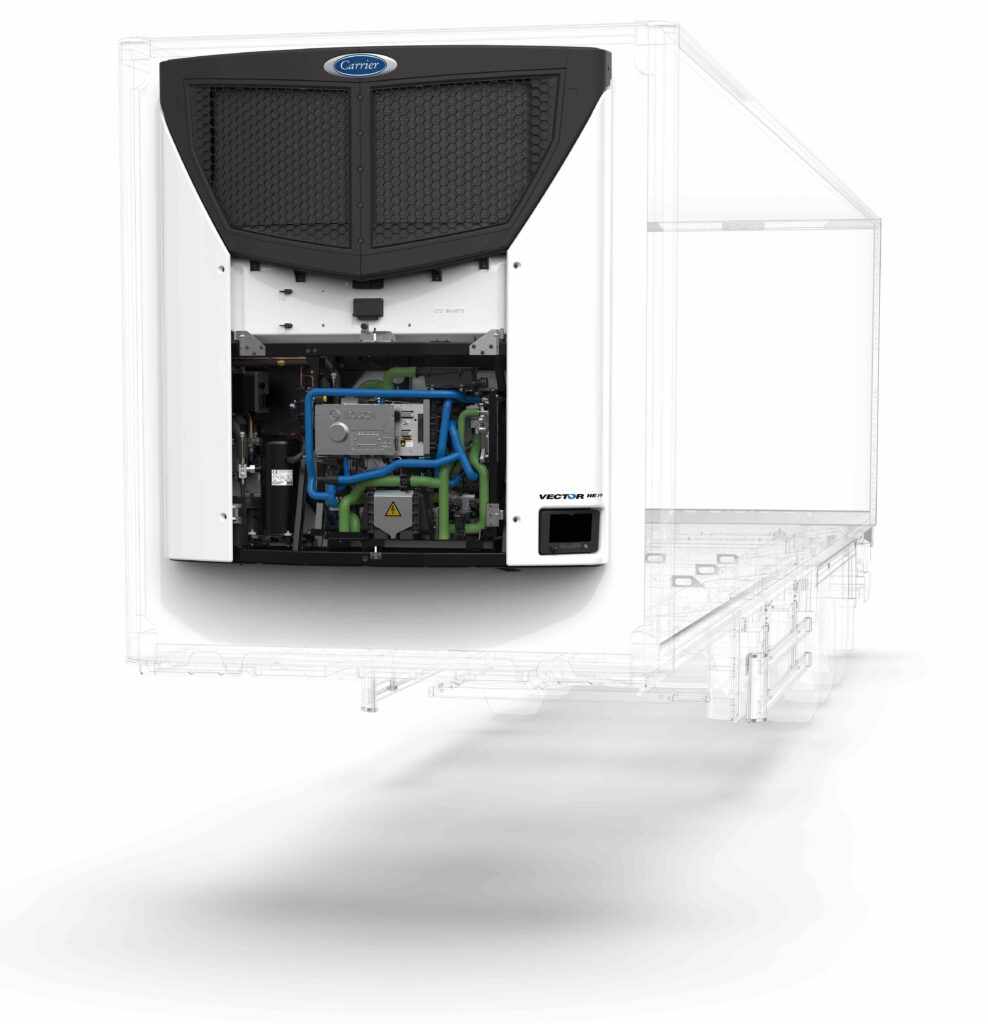
Mercedes-Benz Trucks has prototype hydrogen fuel cell trucks on test and expects production of a 40-tonne truck with 25 tonne payload and 1,000 kilometres range within five years. At the lower end of the weight scale, Hyundai and Iveco unveiled a prototype Daily hydrogen fuel cell electric van.
The 7.2 tonne prototype that uses Hyundai’s 90kW hydrogen fuel cell and 140kW e-motor, has been tested in Europe. It has a range of 350km, 3-tonne payload and a re-fuelling time of 15 minutes.
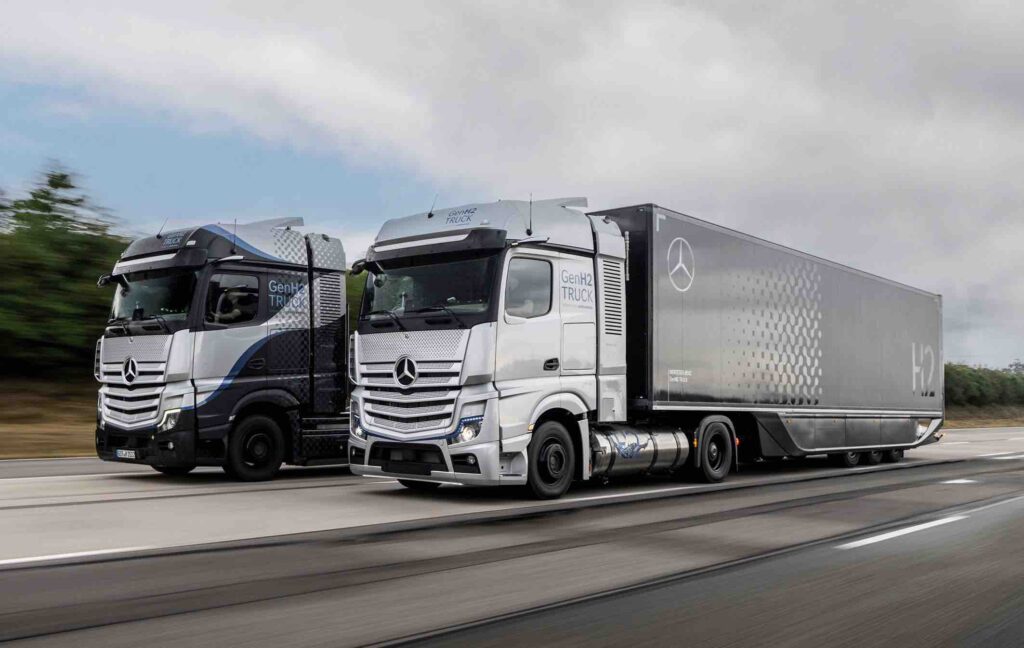
Hydrogen power may still be in the prototype stage, but electrification is here. Daikin Europe launched its Exigo Electric trailer fridge, based on its diesel-powered unit launched a year ago. Daikin’s fridge was shown fitted to a Chereau trailer with 54 SonoMotors solar panels, capable of recharging the main battery powering the fridge.
A new name at Hanover is E-Cooltech, set up by Peter Grosskopf, who founded Frigoblock in 1978, subsequently sold in 2015 to Trane, owner of Thermo King. E-Cool Tech has a low-height roof mounted fridge, 240 mm high, which it plans to market worldwide.
The system has hermetic refrigeration circuits, is emission free, and uses natural refrigerants with single-figure global warming potential.
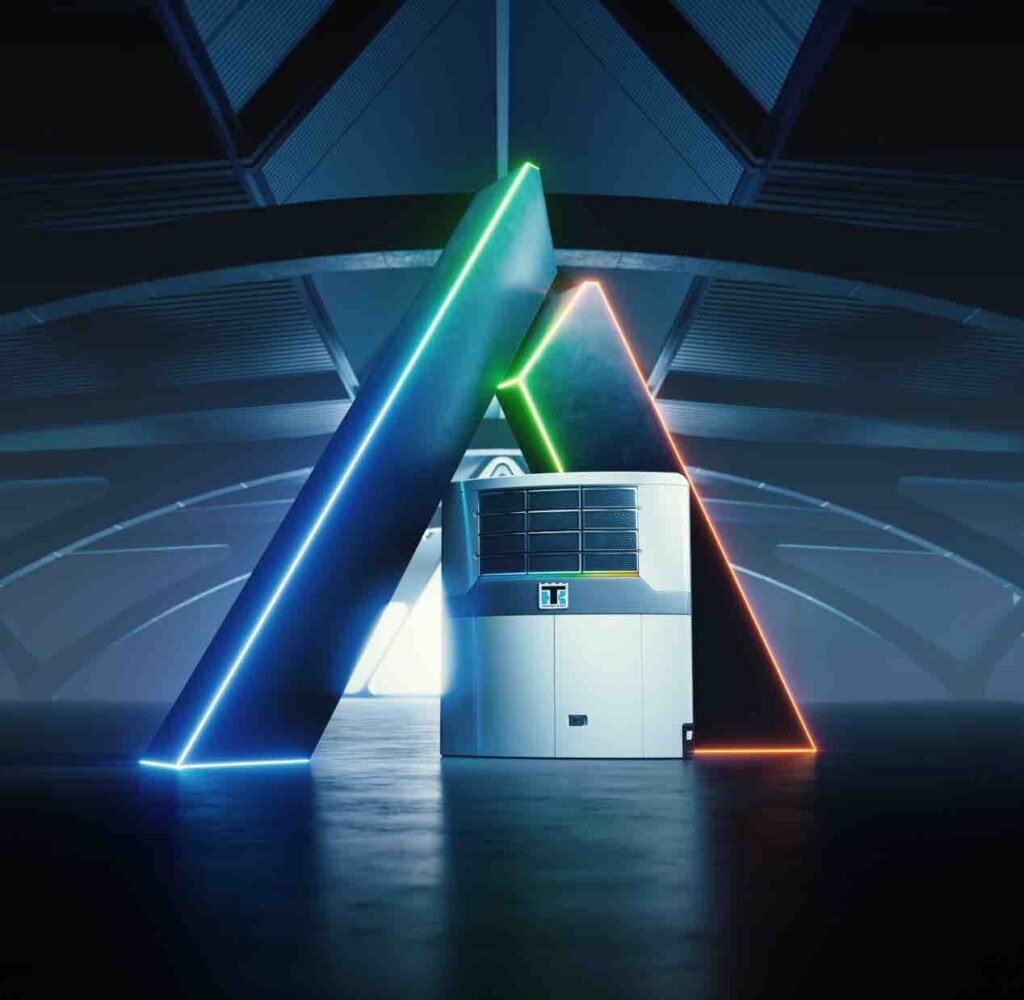
Thermo King continues with its switch to all-electric systems, launching the Advancer-e: an all-electric, engineless trailer fridge, compatible with all major engine-alternative power sources, including AxlePower, Frigoblock’s Envirodrive alternator, Thermo King’s battery EnergyPack, and shore-power.
Thermo King also premiered the E-Series for battery electric vehicles, powered directly from the van’s batteries with power management controls to balance the needs of the fridge with that of the vehicle.
“The new E-Series were designed from the ground up specifically for battery-powered electric vehicles between 3.5 and 7.5 tonnes,” said Graham Wells, vehicle-powered truck product manager, Thermo King Europe.
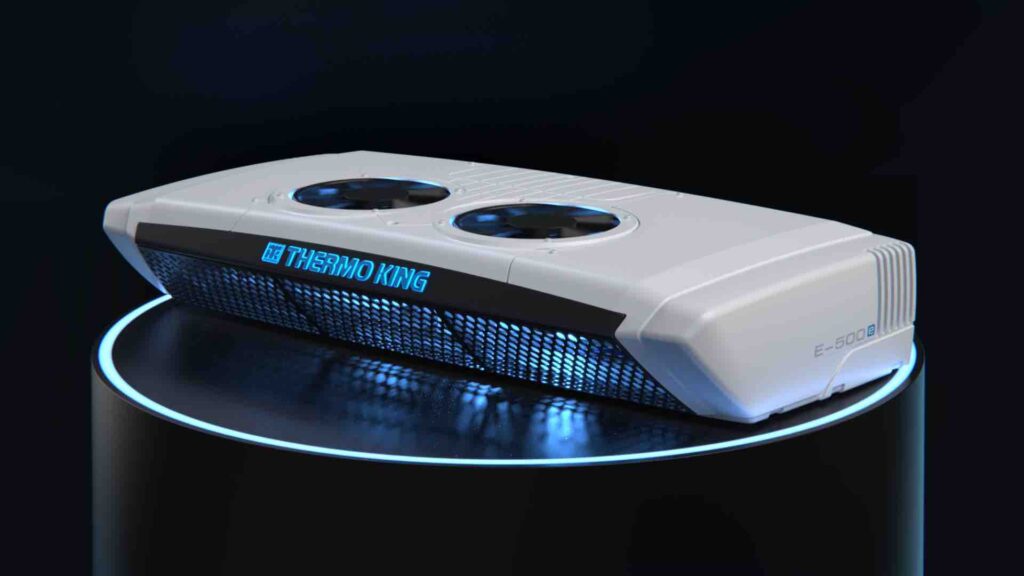
Frigoblock showed its EK Whisper electric undermount split refrigeration system for multi-drop urban distribution. Power comes from a Frigoblock inverter on the vehicle engine PTO and batteries give hold-over capacity when the truck engine is not running.
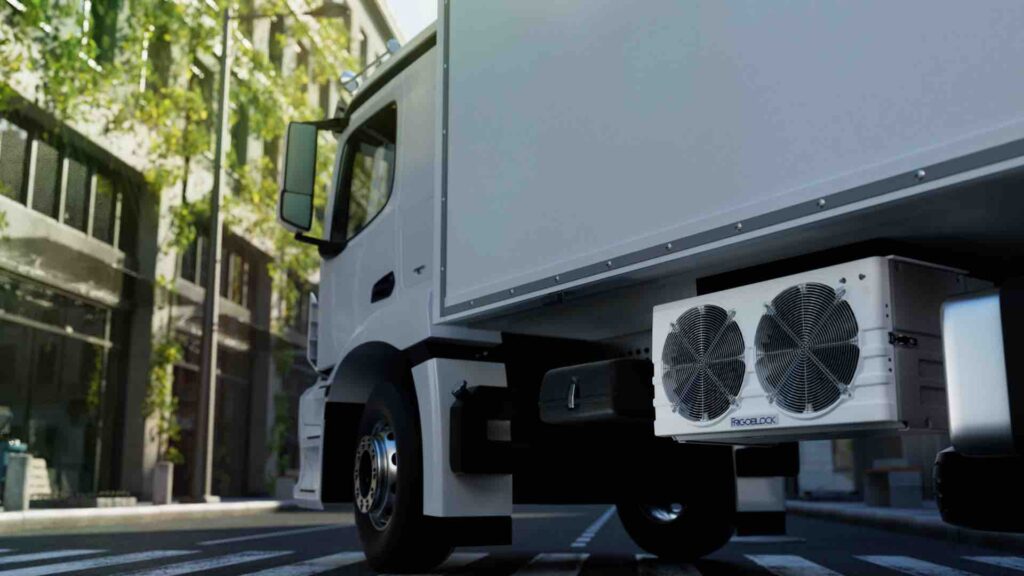
Where’s the hydrogen?
Sourcing green hydrogen remains a challenge. Daimler Truck and Linde are developing a process for handling liquid hydrogen that provides higher storage density and easier refuelling with a pilot station planned in Germany in 2023. Mercedes-Benz is collaborating with others to develop refuelling and vehicle technologies that apply a new liquid-hydrogen standard to establish a global market for the new process.
Daimler Truck is working with Shell, BP and TotalEnergies to create a hydrogen re-fuelling infrastructure in Europe. In addition, Daimler Truck, Iveco, Linde, OMV, Shell, TotalEnergies and the Volvo Group have committed to work to create the conditions for the mass-market roll-out of hydrogen trucks in Europe as part of the H2Accelerate interest group.
Volvo Group and Daimler Truck are committed to hydrogen-based fuel cells with a joint venture, Cellcentric, set up last year.
